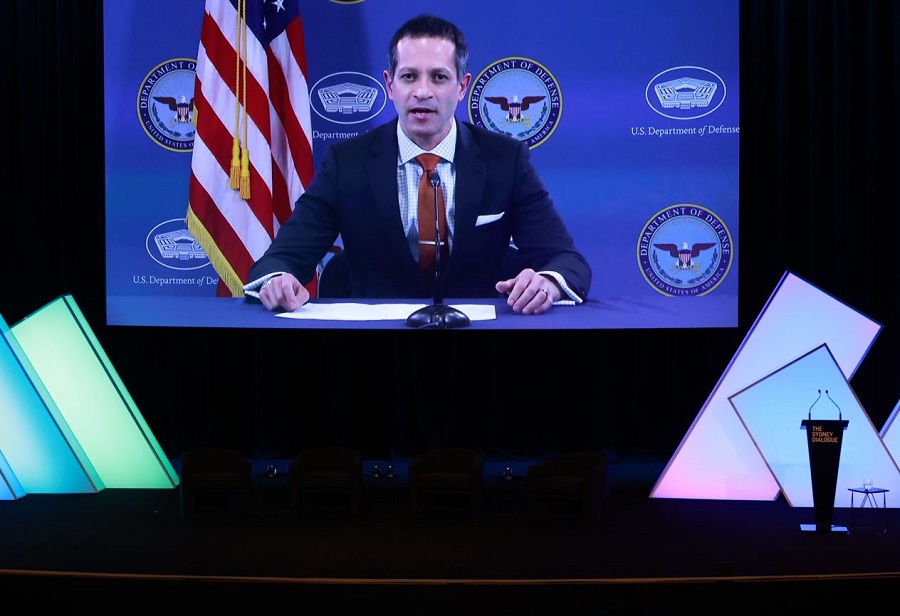
[ad_1]

In the ultimate session on Day 1 of ASPI’s Sydney Dialogue, Mike Horowitz from the US Department of Defense led a panel dialogue on world know-how developments.
In these introductory remarks, I’ll lay out how the US Department of Defense is considering the intersection of technological change in geopolitical competitors and what it means for the safety surroundings, significantly within the context of the Indo-Pacific, a significant area for the way forward for the world. I need to let you know about three developments shaping this intersection of technological change, geopolitics, and nationwide safety.
First, a collection of applied sciences, together with synthetic intelligence, biotechnology and cyber, are already on-line and rising extra subtle day-after-day in methods which can be already reshaping economies, societies and militaries. For instance, the current public launch of huge language fashions like ChatGPT illustrates the way in which advances in AI and machine studying can revolutionise how we mixture, entry and course of info all over the place from the classroom to the navy. These advances symbolize general-purpose applied sciences just like the combustion engine and the plane in prior generations. They have strategic penalties, and the drivers and impacts are a lot broader.
They replicate a pattern the place so lots of the cutting-edge applied sciences of at present have skilled booms on account of private-sector and industrial funding. Second, these technological modifications are accelerating modifications within the safety surroundings. The 2022 US nationwide defence technique clearly describes this evolving strategic surroundings in the way in which the People’s Republic of China is searching for to leverage technological benefit to create systemic challenges.
Furthermore, Russia’s horrific invasion of Ukraine, triggering the most important warfare in Europe since World War II makes Russia an acute menace that we additionally take into consideration day-after-day on this context. Third, we can not go it alone if we’re going to succeed on this complicated world. As Under Secretary of Defense [Colin] Kahl mentioned final yr, this isn’t a contest of nations. It’s a contest of coalitions.
Collaboration with allies and companions isn’t just foundational for US nationwide safety pursuits. It’s essential to strengthen and maintain deterrents in gentle of quickly rising applied sciences. The unbreakable alliance that the United States shares with Australia, for instance, is a manifestation of our work and dedication to scale back institutional boundaries, together with those who inhibit collective analysis and improvement, planning, interoperability, info sharing and know-how sharing.
The AUKUS partnership between Australia, the United Kingdom and the United States is an illustration of this dedication. AUKUS is a generational alternative that, as Secretary of Defense Lloyd Austin says, will strengthen our mixed navy capabilities, increase our defence industrial capability, improve our means to discourage aggression and promote our shared purpose of a free and open Indo-Pacific.
AUKUS is a shared long-term funding that may enable us to construct defence benefits that endure for many years to come back. Competing is about creating stability and making battle much less probably, serving to be sure that free and open Indo-Pacific the place all nations can prosper free from coercion. But this isn’t nearly competitors; it’s additionally about cooperation. We want a standard understanding of how we develop and use the navy instruments of at present and tomorrow consistent with our values.
For instance, the United States not too long ago launched a political declaration on accountable navy use of synthetic intelligence and autonomy. This non-binding worldwide settlement establishes robust norms of accountable behaviour for navy actions surrounding AI and autonomy, constructing on classes discovered from over a decade of Defense Department insurance policies. It’s a part of our dedication to accountable use, making certain that the worldwide adoption of navy AI and autonomy occurs in a method that minimises unintended bias and accidents whereas maximising the advantages. As you interact on these matters and extra, think about the person state and world impacts of rising applied sciences.
Are there latent fears or distrust of sure applied sciences? How will sure technological advances influence safety dynamics? How can we amplify alternatives to work collectively to handle world challenges?
[adinserter block=”4″]
[ad_2]
Source link